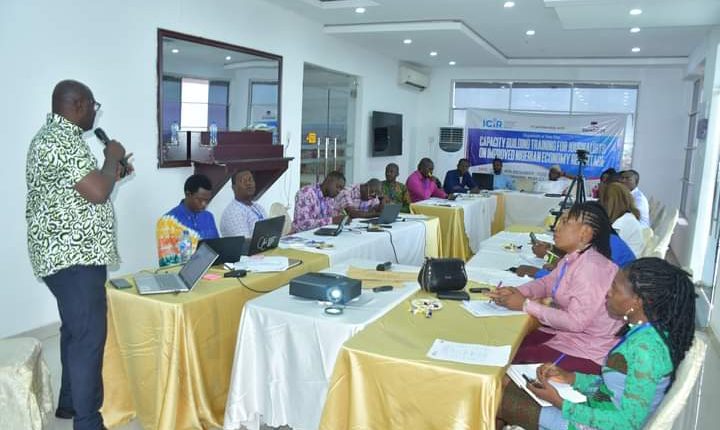To strengthen the coverage of the Nigerian economy, the International Centre for Investigative Reporting (ICIR), in partnership with Dangote Industries Limited, organised a two-day capacity building workshop to train journalists on investigative reporting.
The workshop, which took place in the South East geopolitical region, precisely in Enugu State, recently exposed the journalists to the intricacies involved in investigative reportage of different sectors of the economy.
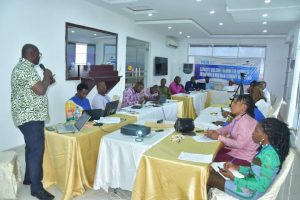
Several areas of investigative journalism techniques, such as Ethical Business, Human Rights and the Environment, Understanding International Financial Flows and Money Laundering, Interpreting Financial and Economic Data, Forensic Interviewing Techniques, and Data Reporting were covered during the training.
Opening the training in Enugu, the General Manager, Branding and Communications, Dangote Industries, Mr. Okey Nwankwo, said the training was planned to upgrade the capacity of practising journalists on business reporting skills, while describing the company’s relationship with the media as cordial.
According to him, apart from equipping the journalists with the necessary skills required for adequate reporting of social economic and business issues, the programme would further strengthen the existing relationship between the company and the journalists.
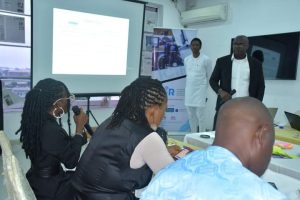
The ICIR Programme Officer, Afred Akerele, explained that the training was organised to strengthen the capacity of Business Correspondents/Reporters with best practices on investigative reporting, especially in the business and finance sector, knowing that the private sector contributes the largest growth index to the Nigerian economy.
According to Akerele, as a Centre with a strong passion for investigative reporting, The ICIR track records in training span increased intellectual, practical, and improved professional skills for media organizations and personnel.
He stated: “For us, business reporters must advance from traditional media practices to a more advanced and digitalized approach with a quest to learn new reporting innovations, analysis, virtualization, proper documentation, headline crafting, and verification. This is an extended project that will cut across all six regions of this country, but we are piloting with the Southeast.
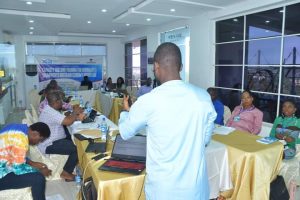
“It’s interesting to know how excited the participants were seeing the learning schedules/curriculum designed for the programme with the level of expertise of the facilitators. Sessions were much more engaging and interactive, which opened up the participants to some entirely new innovations that were not limited to business/finance reporting and also enhanced their knowledge of other mechanisms for investigative reporting with prejudices, corruption, or bias. The practical sessions help the participants to systematically practise their learning under the guidance of the facilitators, for this is the hallmark of learning we hope that continued practising will help the participants to increase their knowledge and become well-oriented business reporters and, in turn, have a great impact in improving the Nigerian Economy and in building a robust private sector partnership with The ICIR and the Dangote group as we move to other zones in Nigeria for this training.”
He appreciated Dangote Industries for the purposeful partnership in ensuring the economic growth of Nigeria through Business Reportage.
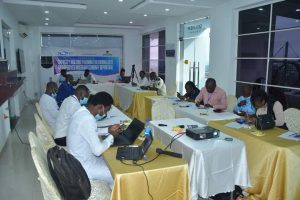
Speaking on the benefits of the training, a reporter with Federal Radio Corporation of Nigeria, Voice FM Nsukka, Rita Onyekwe, described the training as educative and beneficial for economic and business reporting in Nigeria.
She commended Dangote Industries and The ICIR for creating the opportunity for journalists to be trained on different aspects of investigative journalism techniques. “I was really fascinated by true life experiences shared by the facilitators. This training is definitely going to take my career to another level.”
For Chigozie Uzosike of Newspoint Newspapers, Owerri, the training was timely for the present-day challenges facing journalists in Nigeria.
Uzosike commended the organizers for selecting the best facilitators to tackle issues like ethics in journalism, responsible reporting, fact-checking and validation for news before publication.
He believed that the knowledge gained during the training would expose him to more opportunities in the global media industry.
Another journalist with The Guardian Newspapers, Enugu, Lawrence Njoku, stated: “I want to reiterate that it was not a mistake at all when I applied for this training opportunity. I say this because investigative journalism is on the progressive trend and requires constant capacity building. From the two-day exercise, I have been able to improve my knowledge on investigative reporting. Before the training, I was always in a hurry to conduct investigative stories and got discouraged when the right sources were not forthcoming. With this training, I have acquired new skills. I can now do better and represent my medium appropriately.”
According to him, with the knowledge gained on data journalism, “I can now do better stories using data and graphics.”

